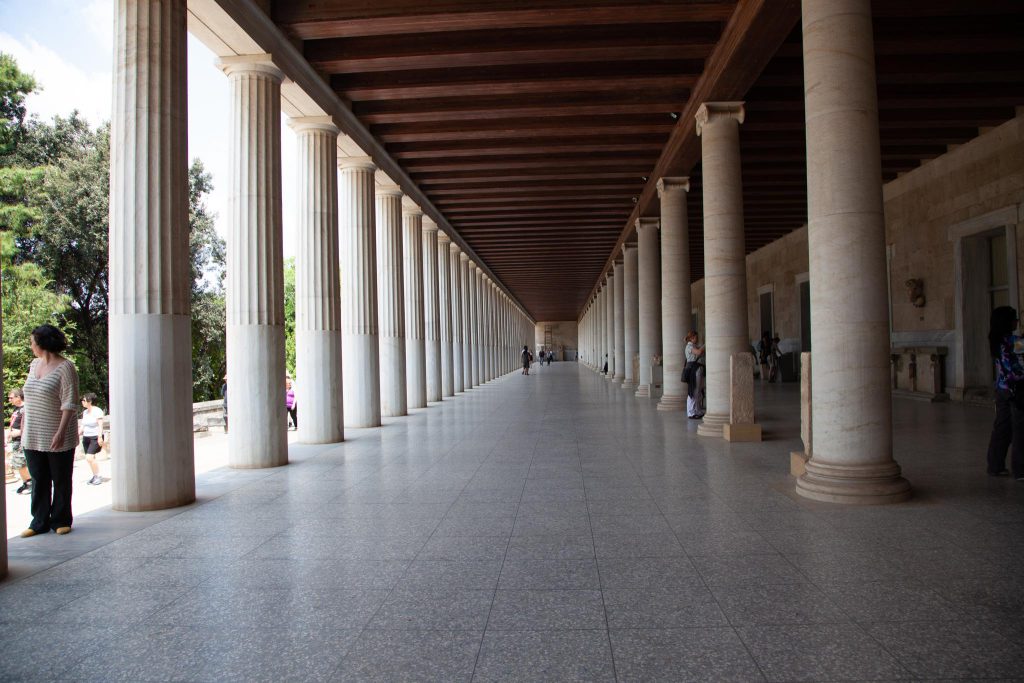The stoa was built by and named after King Attalos II of Pergamon, who ruled between 159 BC and 138 BC. The current building was reconstructed from 1952 to 1956 by the American School of Classical Studies at Athens and currently houses the Museum of the Ancient Agora.
The Agora of Athens today is an archaeological site located beneath the northwest slope of the Acropolis. The word “agora” applies to an assembly of people and by extend marks the gathering place. In modern Greek the term means “marketplace”.
Just about every ancient and modern city includes a place for an agora, and the Agora of Athens, being located at the heart of the city, remained in use either as an assembly, as a commercial, or as a residential area for about 5000 years. Consequently the area has undergone countless building, destruction, and rebuilding cycles. Today this strata of history has been distilled through excavations to expose the Agora’s important functions from Archaic to Greco-Roman and Byzantine times.

















